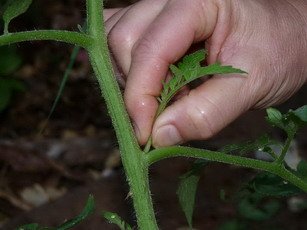Growing Potatoes with Video Tutorial Courtesy GIY Ireland
Potatoes Why Grow It? Where would the GIYer be without the humble spud? Spuds can be grown pretty much anywhere and will actually improve poor soil. They produce a high yield from a relatively small space and store well. No wonder they have been a staple diet for Irish families for centuries. Digging for your first new potatoes will be like Christmas morning – promise! Sowing Effectively there are two types of potatoes – earlies and maincrop. Earlies grow quickly, have no skin worth speaking of, and are usually out of the soil before blight arrives. Maincrop develop later, produce a higher yield, develop a thick skin and can therefore be stored – they are, unfortunately, more vulnerable to blight as they are in the ground during the summer months when blight conditions prevail. Potatoes are grown from “seed potatoes” which are potatoes saved from the previous year’s crop. It was traditional for Irish GIYers to save their own seed potatoes but this is generally o

